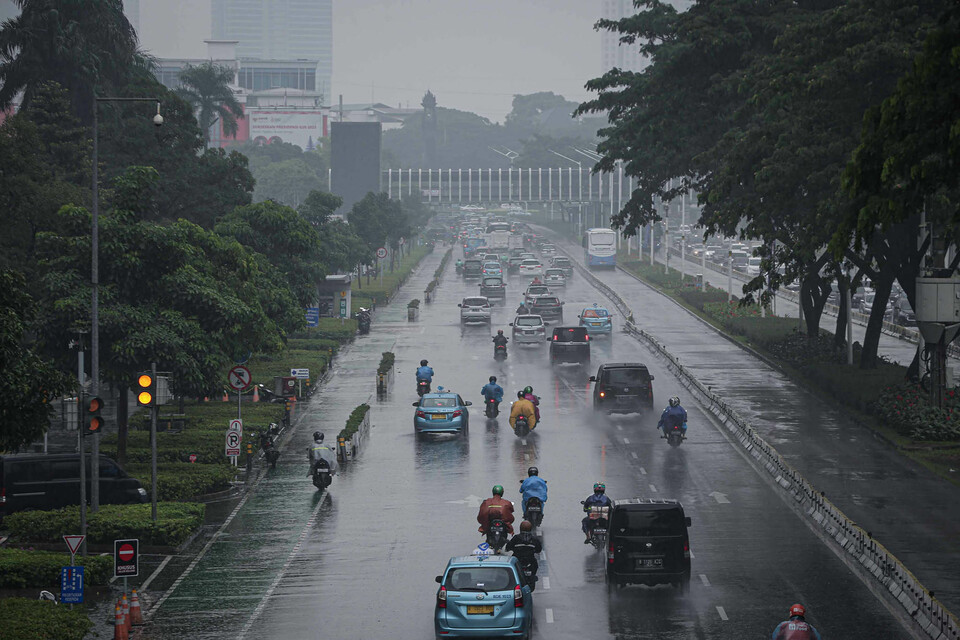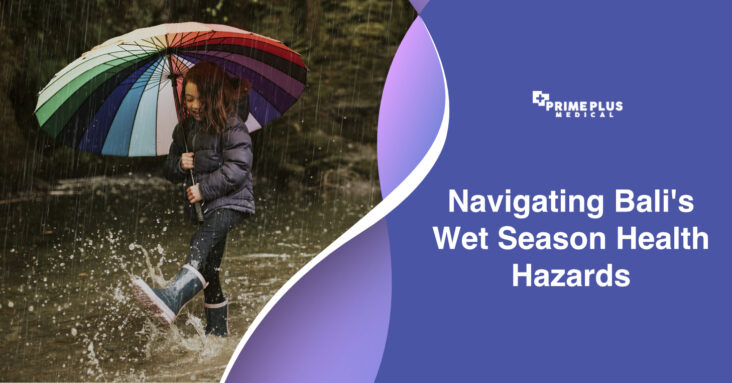The most common diseases during wet season are cold and dengue fever, after several months of barely any rain and hot days, even by Bali’s standards, the arrival of rainy days on the island is refreshing and much-needed.
However, during the wet season, there is also more to anticipate. Quite a few diseases are more prevalent during this period. From the common cold to dengue fever, we must put in more effort to prevent ourselves and family from getting sick during rainy days.
To help you stay safe and healthy this rainy season, we would like to share all the basics you need to know about the most common diseases during the wet season in Bali and effective ways to prevent them. Let’s take a look!

- Common cold
Although the relationship between weather and viruses is multifaceted, some viruses, such as rhinovirus, the most common cause of the common cold, show seasonal trends.
In Bali, the common cold and other respiratory infections often see an uptick during the rainy season. This trend is common in most places worldwide.
You can reduce the risk of catching a common cold by practicing good hygiene, such as regular handwashing and avoiding close contact with sick people. Additionally, maintaining a strong immune system through a balanced diet rich in vitamins and minerals is always a great idea.
And if you have embraced riding a scooter as part of your Bali lifestyle, you must be dressed warm enough when riding through rainy days. Plus, make sure that you always have your raincoat with you. Better safe and dry than soaked and sorry!
- Dengue fever
Dengue fever is a mosquito-borne illness spread through the bite of the Aedes mosquito, which exists in tropical and subtropical areas, including Bali. During the rainy weather, the population of insects increases significantly. Therefore, the number of dengue fever cases usually rises during this season.
Symptoms of dengue fever include high fever, severe headache, pain behind the eyes, joint and muscle pain, and a rash. To prevent dengue, you can use mosquito repellent, wear long-sleeved clothing, and eliminate breeding grounds by removing standing water around your home.
As severe dengue fever can be life-threatening, you should be able to recognize its signs and symptoms. To learn more about dengue fever, read Rainy Season In Bali: Watch Out for Dengue Fever!
- Digestive problems
According to the Centers for Disease Control and Prevention (United States), wet surfaces are a good place for bacteria to grow. Hence, certain gastrointestinal infections caused by bacteria also become more prevalent during the rainy season in Bali.
You can prevent digestive problems caused by bacteria and viruses by practicing proper hand and overall hygiene. That includes ensuring that food is cooked thoroughly and prepared hygienically when cooking your meals. And when it comes to eating at restaurants and getting takeaway, make sure to only opt for businesses that guarantee excellent food hygiene practices.
- Typhoid
Typhoid fever is a waterborne disease that can become more widespread during the rainy season. This disease is caused by the bacterium Salmonella Typhi, typically transmitted through contaminated food and water. Typhoid symptoms include sustained high fever, headache, abdominal pain, and a rose-colored rash.
To prevent typhoid, you should practice strict hygiene, consume safe and well-cooked food, avoid consuming raw or undercooked seafood, and only get food from restaurants or take-out joints with excellent hygiene standards.
By adhering to hygiene practices, avoiding mosquito bites, and consuming safe food and water, you can protect yourself better against common diseases during the wet season.
We sincerely hope you will stay healthy during Bali’s rainy days. However, if you ever need us, our English-speaking team at Prime Plus Medical in Canggu is ready to assist you 24/7.

